
The Knights of Father Mathew was a Catholic temperance society founded by Fr Theobald Matthew in Ireland which promoted complete abstinence from intoxicating liquors.

The Knights of Father Mathew was a Catholic temperance society founded by Fr Theobald Matthew in Ireland which promoted complete abstinence from intoxicating liquors.
It was founded in Cork in 1838 by Theobald Mathew, a Capuchin friar – generally known as Father Mathew. Under his influence, branches the organization spread throughout Ireland, though it was badly disrupted by the Great Irish Famine of 1846 to 1849. Father Mathew also travelled in England and Scotland (1842) and in the United States (1849 to 1851) to preach temperance. It is estimated that 7,000,000 took the pledge of abstinence under his influence.
Father Mathew began his work in the U.S. in 1849, at which time he was entertained by the President and granted a seat within the bar of the Senate and on the floor of the House. Only one foreigner, General Lafayette, had previously been given that honor. He was also lauded on the occasion by famous statesman Henry Clay.
Father Mathew spent two and a half years in the U.S., traveled 37,000 miles, visited 25 states, administered the temperance pledge in over 300 cities and towns to an estimated more than 500,000 people.
The Knights of Father Mathew organization in the U.S. was established in St. Louis, Missouri, on 26 April, 1872. At this time, it was an fraternal society limited to Irish immigrants. [1]
In 1881, it added life insurance as a benefit available to members. Chapters or “councils” were permitted to organize branches of Catholic women that were called "Ladies' Auxiliaries of the Knights of Father Mathew." The Ladies' Auxiliaries were especially active in promoting temperance among children. Both the Knights of Father Mathew affiliated with the Catholic Total Abstinence Union of America in 1895, [1] as did the Ladies' Auxiliaries of the Knights of Father Mathew.
Some members were buried with KFM or K. of F. M. – Knights of Father Mathew – or LAKFM – Ladies Auxiliary of the Knights of Father Mathew on their tombstones.
In early 1900s expanded to include non-Irish Catholics, especially second-generation English-speaking German immigrants [1] In 1915, renamed the Knights and Ladies of Father Matthew when women were admitted to full membership. [1] Membership declined in the 1920s and the organization disbanded in 1931. [1]

The temperance movement is a social movement promoting temperance or complete abstinence from consumption of alcoholic beverages. Participants in the movement typically criticize alcohol intoxication or promote teetotalism, and its leaders emphasize alcohol's negative effects on people's health, personalities and family lives. Typically the movement promotes alcohol education and it also demands the passage of new laws against the sale of alcohol, either regulations on the availability of alcohol, or the complete prohibition of it.

Theobald Mathew was an Irish Catholic priest and teetotalist reformer, popularly known as Father Mathew. He was born at Thomastown, near Golden, County Tipperary, on 10 October 1790, to James Mathew and his wife Anne, daughter of George Whyte, of Cappaghwhyte. Of the family of the Earls Landaff, he was a kinsman of the clergyman Arnold Mathew.
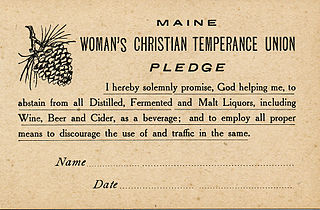
Abstinence pledges are commitments made by people, often though not always teenagers and young adults, to practice abstinence, usually in the case of practicing teetotalism with respect to abstaining from alcohol and other drugs, or chastity, with respect to abstaining from sexual intercourse until marriage; in the case of sexual abstinence, they are sometimes also known as purity pledges or virginity pledges. They are most common in the United States among Catholic and Evangelical Christian denominations, while others are nonsectarian.

The Independent Order of Rechabites (IOR), also known as the Sons and Daughters of Rechab, is a fraternal organisation and friendly society founded in England in 1835 as part of the wider temperance movement to promote total abstinence from alcoholic beverages. The Order has been active in Australia from 1843, promoting temperance and as a benefit society. A branch was established in the United States in 1842, and also flourished for a time. In the United Kingdom, the Order trades under the name of Healthy Investment, being well connected in upper society and involved in financial matters; there it gradually transformed into a financial institution which promotes teetotalism.
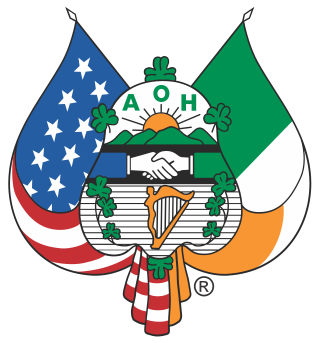
The Ancient Order of Hibernians is an Irish Catholic fraternal organization. Members must be male, Catholic, and either born in Ireland or of Irish descent. Its largest membership is now in the United States, where it was founded in New York City in 1836.

The International Organisation of Good Templars, whose international body is known as Movendi International, is a fraternal organization which is part of the temperance movement, promoting abstinence from alcohol and other drugs.
Ku Klux Klan auxiliaries are organized groups that supplement, but do not directly integrate with the Ku Klux Klan. These auxiliaries include: Women of the Ku Klux Klan, The Jr. Ku Klux Klan, The Tri-K Girls, the American Crusaders, The Royal Riders of the Red Robe, The Ku Klux balla, and the Klan's Colored Man auxiliary.
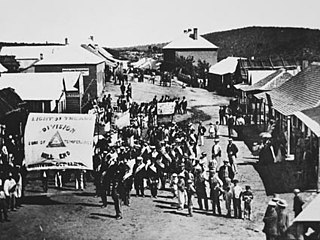
The Sons of Temperance was and is a brotherhood of men who promoted the temperance movement and mutual support. The organization was started in New York City in 1842.
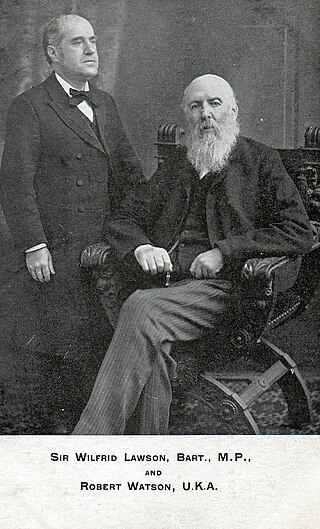
The United Kingdom Alliance (UKA) was a temperance movement in the United Kingdom founded in 1853 in Manchester to work for the prohibition of the trade in alcohol in the United Kingdom. This occurred in a context of support for the type of law passed by General Neal Dow in Maine, United States, in 1851, prohibiting the sale of intoxicants.

The Catholic Total Abstinence Union of America was a Roman Catholic temperance organization active in the 19th and 20th centuries. The work of Father Mathew in promoting temperance across the U.S. led to the establishment of numerous separate and independent Catholic temperance groups. The Catholic temperance societies of Connecticut created a state union in 1871, from which a national union was formed the following year at a convention in Baltimore, Maryland. 177 such societies from 10 states and the District of Columbia, representing a total of 26,481 members, created the Catholic Total Abstinence Union of America. In total, over 500,000 Roman Catholics made the temperance of the Catholic Total Abstinence Union of America.
The Knights of Equity (KOE) is an Irish Catholic fraternal organization established in the US in 1895 and still in active operation in the 21st century. The group is among the oldest Irish-Catholic membership associations in America. With some 65 local chapters, called "courts", during its period of greatest influence, the group was an important Catholic political and fraternal benefit society. The early society organized Irish Catholics in America against discrimination, and gave financial aid to impoverished Irish immigrants.
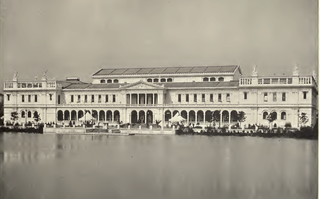
The World's Congress of Representative Women was a week-long convention for the voicing of women's concerns, held within the World's Congress Auxiliary Building in conjunction with the World's Columbian Exposition. At 81 meetings, organized by women from each of the United States, 150,000 people came to the World's Congress Auxiliary Building and listened to speeches given by almost 500 women from 27 countries.

Letitia Youmans was a Canadian school teacher who became an activist for the temperance movement. Youmans founded and served as the first president of the Ontario chapter of the Women's Christian Temperance Union. She also served as editorial writer for the IOGT's Temperance Union.

In the United States, the temperance movement, which sought to curb the consumption of alcohol, had a large influence on American politics and American society in the nineteenth and twentieth centuries, culminating in the prohibition of alcohol, through the Eighteenth Amendment to the United States Constitution, from 1920 to 1933. Today, there are organizations that continue to promote the cause of temperance.

The Temperance movement in Ireland was an influential movement dedicated to lowering consumption of alcohol that involved both Protestant and Catholic religious leaders.

Catholic involvement in the temperance movement has been very strong since at least the nineteenth century, with a number of specifically Catholic societies formed to encourage moderation or total abstinence from alcohol.

Teetotalism is the practice or promotion of total personal abstinence from the consumption of alcohol, specifically in alcoholic drinks. A person who practices teetotalism is called a teetotaler or teetotaller, or is simply said to be teetotal. Globally, almost half of adults do not drink alcohol. A number of temperance organisations have been founded in order to promote teetotalism and provide spaces for non-drinkers to socialise.

Sir James Charles Mathew was an Irish-born judge. Born in an Irish Catholic family in Cork, Mathew was educated at the largely Protestant Trinity College, Dublin, before joining the English bar. In 1881, although still a junior barrister, he was appointed to the High Court of Justice, where he sat in the Queen's Bench Division and was said to be the best nisi prius judge of his time. He was promoted to the Court of Appeal in 1901, before resigned from the bench due to health reasons in 1905.

Alice Brown Caine was an English temperance leader. She served as president of the Women's Total Abstinence Union, the Liverpool Ladies' Temperance Association, and the Deaconesses' National Total Abstinence League.